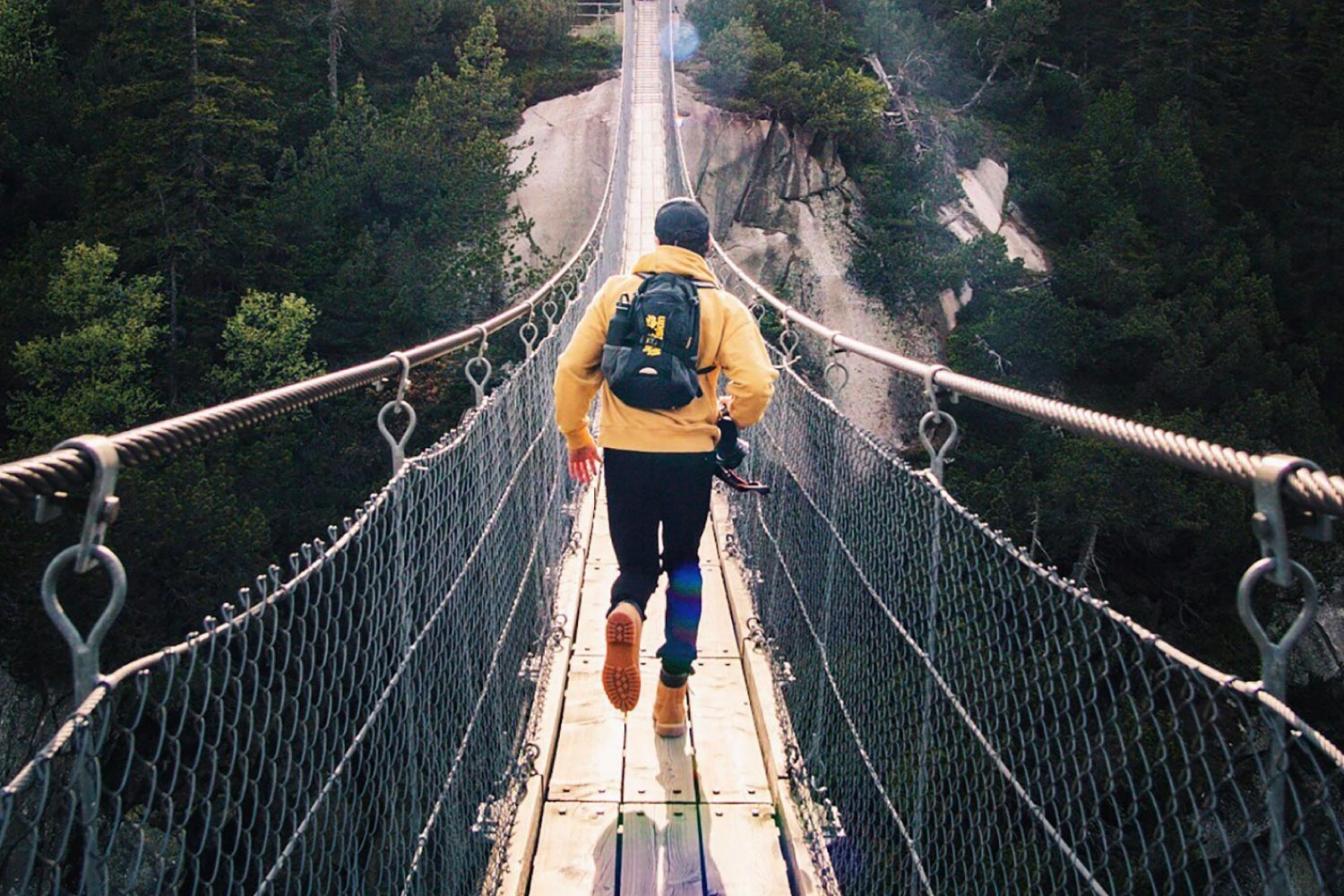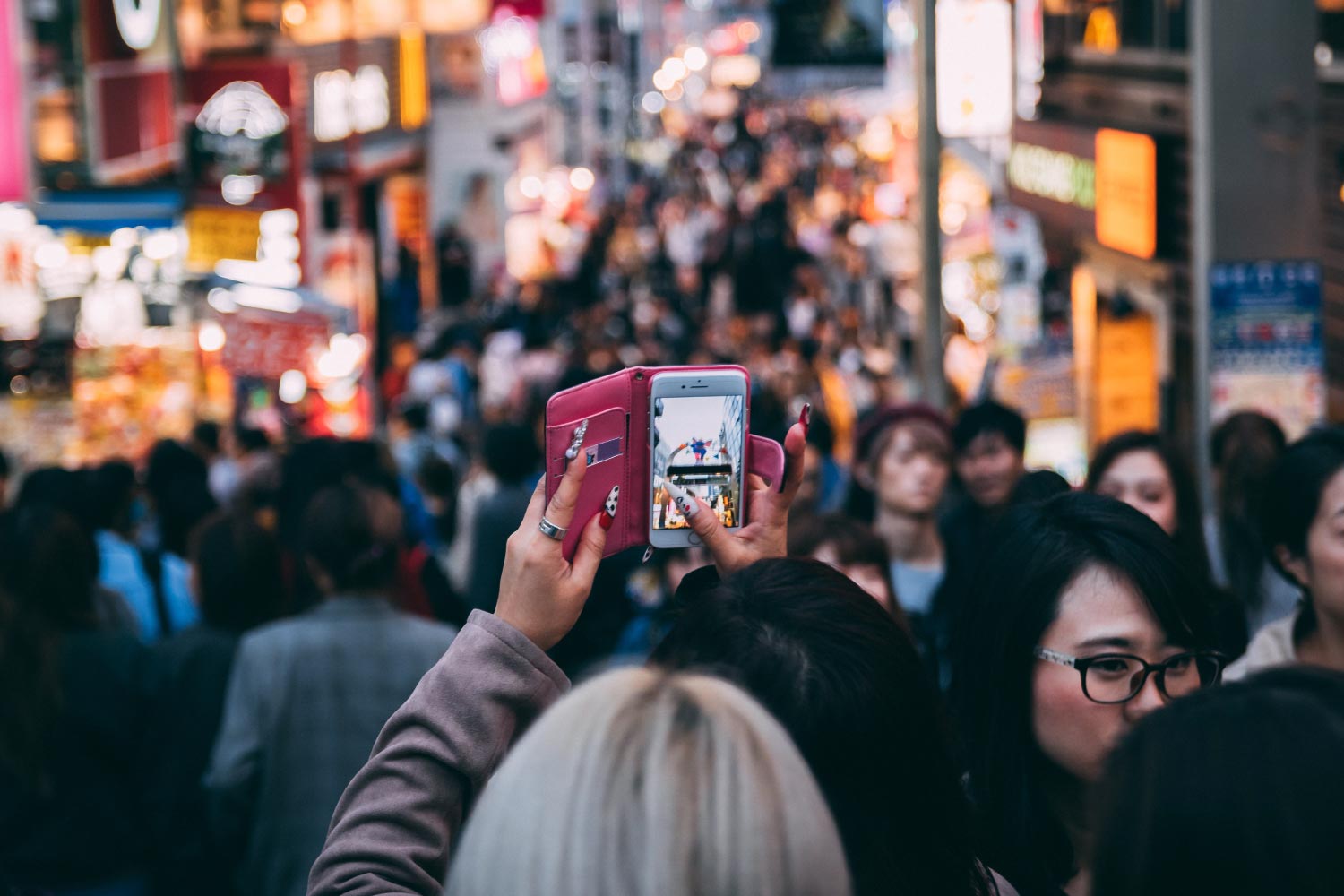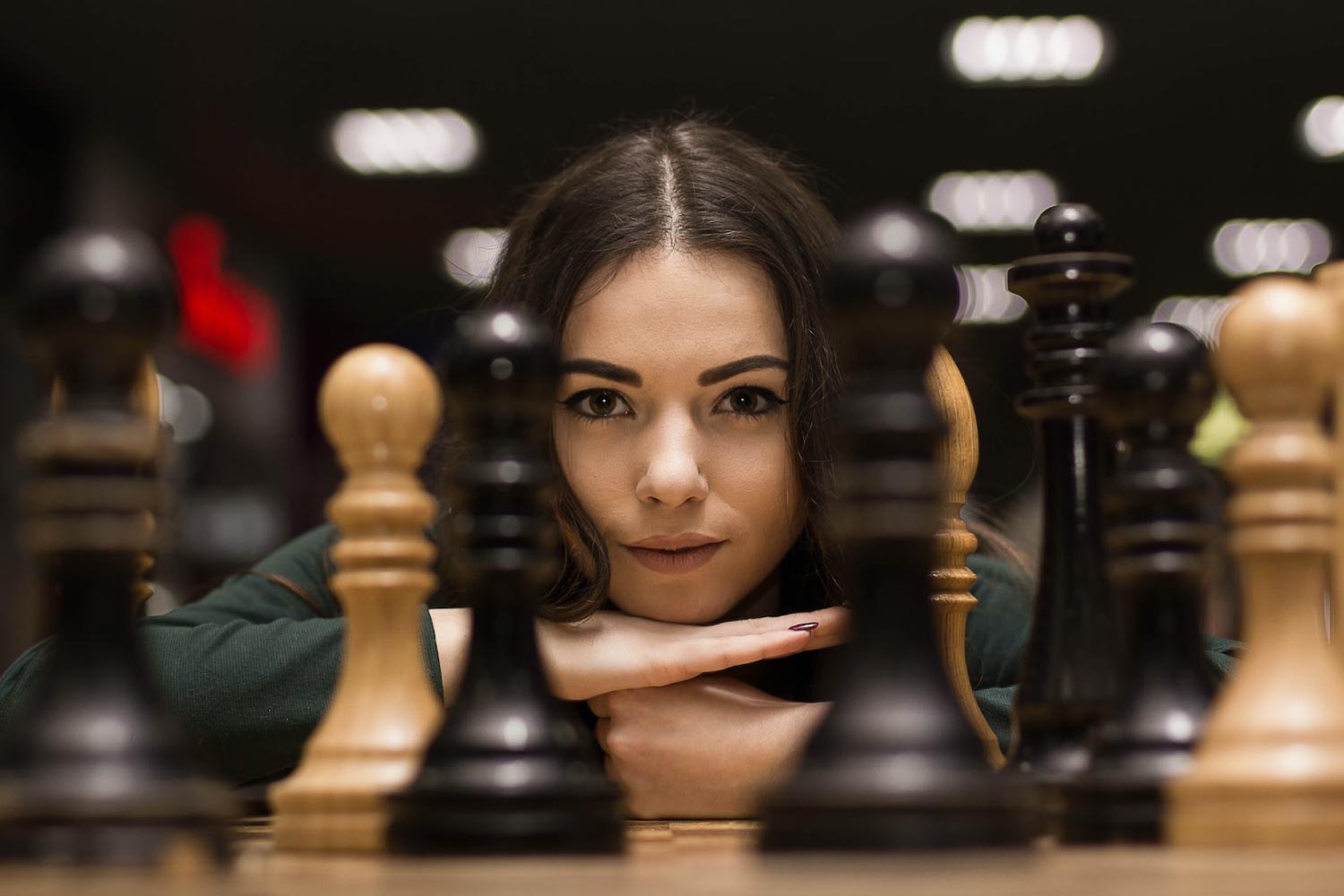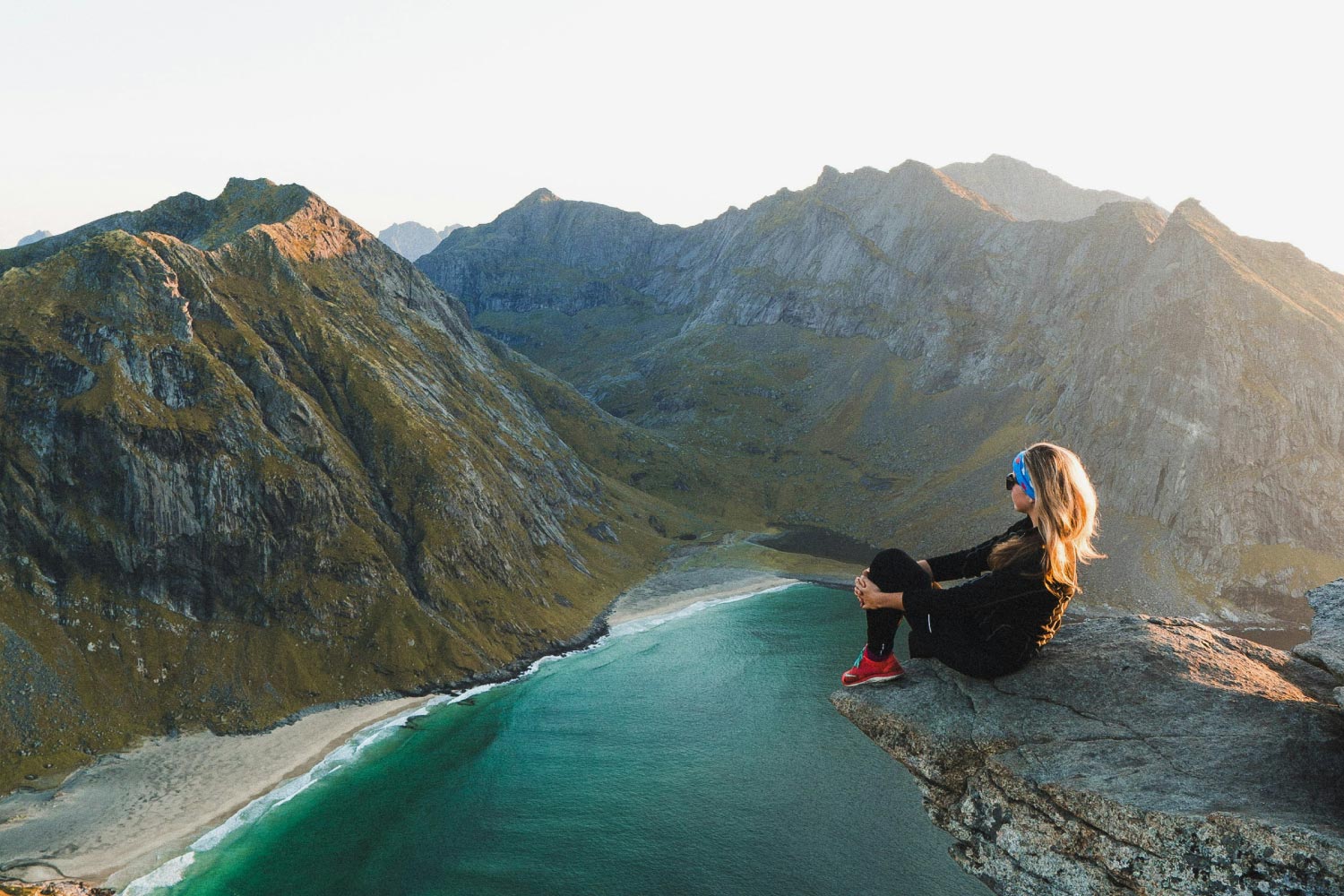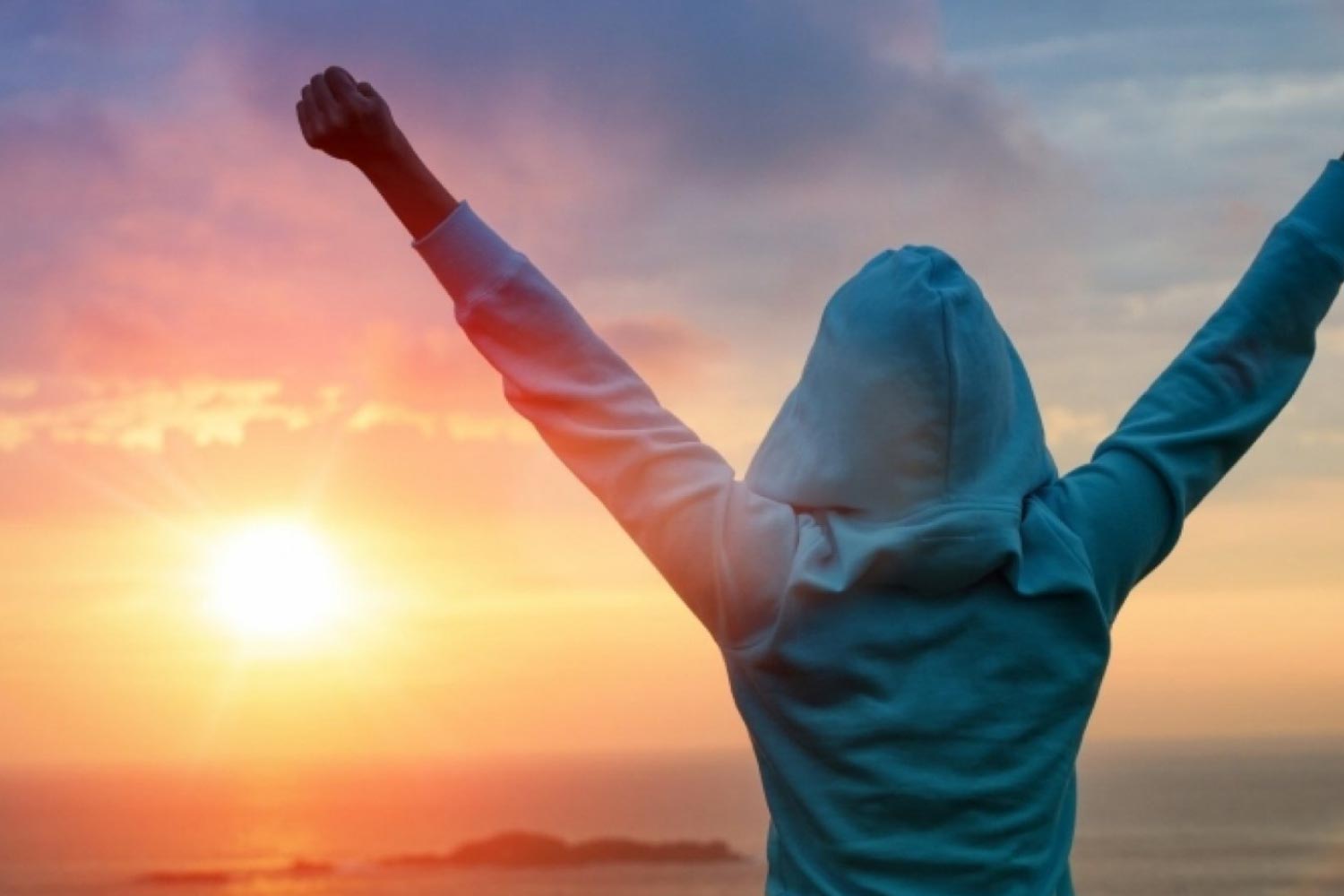Without knowing it, my quest for purpose started one sunny afternoon in the back garden of a small house in Aix-en-Provence in southern France. It was spring, and I was 20 years old. I had finished military service and then spent an exciting and fun winter skiing in the north of Sweden.
Now I was studying French and staying in the house of a wonderful older woman, Madame Rey. Every evening she made us a delicious three-course meal with wine, and we spoke about life, or at least I tried to, struggling with my French.
I felt free and inspired, spending months away from family and friends, with the future open and full of possibilities. This particular afternoon, I sat down in the shade to write a vision for my life. I can’t remember where I got the idea, but it felt like an important moment.
I wrote down a list of things I wanted to achieve in my life. I wanted an exciting, well-paid job and a career that led to a CEO position further out in time. I wanted to be very knowledgeable in basically everything, ranging from fine wines and fashion to Greek philosophers. I wanted to be in great shape, to have a cool apartment, to have a good looking and smart girlfriend, to know many languages, and the list went on and on. When I had finished, I looked at the list.
I realised it would mean a lot of work to realise this ambition, and I drew an arrow pointing away from the vision, like a “take away,” and at the end of the arrow, I wrote, “sleep less.” And without questioning that conclusion very much, so I did.
A few months later I went to business school, and soon I was also working for a German chemistry company alongside my studies. I loved it. It was challenging and exciting. Next to studies and work there were parties and travel and a good looking and smart girlfriend. Why all this was so important I didn’t think so much about. I wanted to be someone. I felt invincible, fueled by my ambitions and the sense of being recognised.
Nothing was impossible. Once I was studying three courses instead of the normal full-time pace of two, in addition to my job. To be able to pass the exams and deliver at work at the same time, I scheduled every hour between 7 a.m. and 10 p.m. for 21 straight days with studies and work.
There were signs, of course, that this tempo and the lack of rest and reflection had a price. Once during this 21-day period, I was embarking a flight in Munich after a meeting. I sat down and immediately brought up a book on business law that I needed to read to be prepared for the next exam. I opened the book, read a few lines and then felt nose blood starting to drip down on my tie. Not good I thought, but it wasn’t enough to change my course.
A call to adventure
About 4-5 years later, I was spending a quite miserable winter in Brussels. Following business school, I got the job that was most sought after at my school, and I spent a few years working for an American consultancy firm. There had been ups and downs and a lot of learning in a short time. In the beginning, I was thrilled and also found many of the assignments stimulating and interesting. But something had started to shift after a couple of years with this life.
This damp and gloomy winter in Brussels, I was building a database with a long list of names of employees, basically trying to help the client organisation figure out whom they could be without. I do think that it makes sense to do exercises like this in certain contexts, but it is also about how and why you do it. During this time, my life felt empty. I started to wonder, “What is the point of all this? What is the point of all this running just to achieve another goal?” I was really living the work-hard, play-hard life I had strived for since that sunny afternoon in France. However, I was starting to realise that while this lifestyle gave great kicks every now and then, the sense of satisfaction never lasted. Sometimes I even caught myself playing a mental game on Sundays, trying to determine how much I would be willing to pay to make it Friday afternoon again.
Joseph Campbell, a professor in literature and the author of many books, talks about the Hero’s Journey as a metaphor for human development through life. The Hero’s Journey starts with “a call to adventure,” some signs encouraging you to move away from your current reality into the unknown.
My call to adventure was emotional but also physical. During almost the whole Brussels experience I had a severe cold, which should have put me in bed but didn’t. It went on month after month. I also got an inflamed Achilles tendon and could hardly walk in a normal way.
Campbell points out that in the hero tales, the hero often neglects the signs and the call to adventure initially, being resistant to leave the known world, the status quo, the current view of self. In the end, however, the signs become so strong and clear that they are unneglectable. So, it was in my case too. After three months of coughing, sniffling and mild limping, the symptoms finally forced me to answer the call, to break the patterns I was repeating and to start a journey that would over just a couple of months have me reassess myself and my life and then change everything.
Am I really alive?
I realised that my body was trying to tell me something but I couldn’t figure out what exactly, working 70- our weeks with no space for reflection. So one day, I just had had enough. I decided to take a break for three months and managed to get unpaid leave. I made the last push to finish my consultancy project, took a day to pack a backpack with some clothes and a couple of books, and then jumped onto a flight to Asia, leaving my mobile phone and computer at home. I felt I had a debt to resolve when it came to introspection and self-inquiry, so I made a choice to make this journey on my own, with as little distraction as possible. I felt that something really needed to shift in my life and in order for that to happen, I needed to create the space for it to unfold. So quite exhausted but hopeful, I set off on an around-the-world trip with one question in mind: “What’s next?”
Leaving Sweden and my familiar hectic life, I could never have imagined how I, in the end, was to respond to this question, how the call to adventure was about me discovering my sense of purpose and then reorganising life accordingly. Three days into the journey, I flew into Laos, maybe one of the most beautiful and tranquil countries in the world. In the small airplane, I was sitting next to a big guy with a bald head. There was something impressive in his appearance. He was the CEO of a Dutch company. Once a year he went to a monastery in Laos to reflect, reboot and then go back into action with more clarity and intention. He asked if I wanted to join him and go visit the monastery, and I thought, “Why not?”
I vividly remember how we walked down a dirt road and saw the golden monastic building at the edge between town and jungle. When we arrived, the monks had some kind of gathering in the temple. I sat down at the back of the room. There were rows of monks, both young and old, all dressed in orange, sitting in half-lotus positions. Suddenly they started to sing. Absolutely still, they sang hymn after hymn. They sang in a beautiful, harmonic and deep way. The sound really touched something in me as my brain struggled to understand the abrupt shift from hectic work mode just a couple of days earlier to now being absorbed into a blissful state by a mesmerising choir of deep and perfectly synchronised voices.
The thought of whether I was in heaven entered my mind. “Was I still alive?” Then the next thought came, “Maybe this is what it is like to be alive for real? Full presence here and now, no distractions, awakened senses, connection.”
Following the gathering, the young monk novices invited me to their room for a cookie and a cup of water. I sat with them on the earth floor. They didn’t know anything about careers, businesses or hip clubs. We spoke about life. There was no need for me to keep up a polished and professional façade. I could just be me. I always thought I had been me, so this was the start of an unexpected liberation, that there was something more in me, a deeper sense of authenticity.
That afternoon, I realised that while striving so intensively towards my vision and what I thought would be a fulfilled and successful life, I had lost two important things. I had lost my sense of playfulness, letting everything become so serious; and I had lost my sense of purpose, which gives a strong sense of meaning from the inside.
Walking home to my hostel feeling happy, free and intrigued, I noticed that the pain in my heel was gone. It never came back. The record-long cold left me a couple of days later. I realised that I had a job to do, finding that which could give me joy and meaning, but I didn’t know how to go about it.
An alternative way
Following the monastery experience, I took a riverboat up north into the real wilderness of Laos. After a few hours on the river, we came to a small village with no electricity. I found a bungalow costing me one dollar per night, and I thought, “Wow I can stay here for the rest of my life if I sell everything I own.”
The village was located on the riverbank at the edge of the jungle. On the opposite side of the river were green hills. Nature really absorbed me and I felt very far away from the rest of the world. In the afternoons, I lay in my hammock watching lightning play over the hills before the sky opened and I had to flee inside. In the mornings, I was awakened by an energetic crowing rooster, sitting under my bungalow, which was built on poles.
But it was the evenings that were transformative for me. We were only about 10 tourists in the village, and at dusk, we gathered for a beer and something to eat. The people that had made it into this at-the-end-of-the-world place fascinated me and we spoke about life, wonder and the meaning of everything.
I especially enjoyed the conversations with two surfers from Hawaii. The kind of surfers who would go out into the waves when there is a real thunderstorm roaring, getting kicks from the electric charges traveling through the water. It may sound crazy, and maybe they were crazy, but I think they were crazy in a very intense and alive way. I longed for the freedom I saw in them. I longed to live with more presence, passion, and adventure. I started to see that there is an alternative way of approaching life where material things and prestige are far less important in relation to the actual experience of the current moment. These meetings in the Lao jungle made me consciously think for the first time in my life that maybe it is the richness of experience that should matter most, the quality of the emotion, the presence with which the senses actually perceive.
I shared the big questions I was pondering with the people whom I had randomly met. “What’s the meaning of life? How do we live more fully? What’s next?” The last evening on the riverbank, this group of life adventurers put together a reading list for me, a list of 10 books on life and personal development they absolutely thought were essential for me…
I brought the list to Singapore and surprisingly found half of them in a bookstore. I decided to go someplace calm and beautiful to digest them and found an isolated beach on a remote Malaysian island. So, for a couple of weeks, I read, reflected and journaled, and I met more people that shared my longing for freedom and meaning.
The book that affected me the most was “The World of the Peaceful Warrior,” by Dan Millman, a book about self-discovery and self-transformation. I recognised myself in the main character, a young man who is successful in the outer world but unfulfilled in the inner world (Dan himself). In the book, Dan describes how he meets this mysterious character called Socrates who becomes his mentor. Socrates works at a gas station but possesses great life wisdom. He guides Dan to question many of his beliefs, to explore new ways of relating to life and to search for the core of fulfillment not on the outside but on the inside. All this resonated strongly with me, and I became even more convinced that my doubts about my work-hard, play-hard life made sense and there was another way of living life, more meaningful and more fulfilling. The question was just, “What would that life look like for me? What would I need to shift and change?”
Facing demons and the rise of purpose
Up until now, my journey had been a great adventure. I expected to see amazing landscapes in these Southeast Asian countries, which I also did see, but I hadn’t been prepared for also seeing new and unexplored landscapes in myself. Being far away from my everyday reality, I had been exploring with a sense of lightness and fascination. As the weeks passed by and my return back home came closer, fears started to arise. I realised that I had created my life from the outside in. I had been so eager to succeed based on what I had perceived success to be in other people’s eyes that I had forgotten about who I really was. Now the consequences of that realisation started to scare me. I knew how to be successful in my current life context, but what would happen if I changed course and created life from the inside out? What would I do? What would people think?
I lay awake long into the nights with the thoughts racing and suddenly no one to talk to. My worrying brain that had checked out in Laos came back into action to challenge me. Wouldn’t it be better to just stay where I was and make a few adjustments?
This period I moved between meetings with my inner demons presenting the case of how things could go very wrong if I followed this new longing for meaning and freedom, to periods of conviction and strength coming from the emerging new thoughts about what was possible. After many rounds of this dance, I realised that I had opened a door in me that I could not close again, no matter the voices of the demons. To close this door of inspiration and take the old path would have been to violate me.
More and more strongly, I felt energy and joy when seeing myself making a difference in the world that mattered not only in the financial dimension but also in the human dimension. Continuing exploring my book list, I learned more about the inner potential inherent in us as human beings, but I also learned about the immense global challenges arising for humanity, based on the collective actions of our species. It seemed to me that the outer crises, the fact that we collectively create results that nobody wants, was a manifestation of an inner crisis. Inspired by my own journey, I thought that the more we learn about ourselves at a deeper level, about our beliefs, our values, our sense of meaning in life, the better equipped we will be to make better decisions for the whole. As I started to realise this in myself, it released a wave of energy in me. I was not here just to be an instrument to help companies make more money, I was here to support human beings to make better decisions for the whole, whether that whole would be themselves, their organisations or the world.
The return
Coming back to Joseph Campbell’s description of the Hero’s Journey, once the hero answers the call to adventure and passes the first threshold, there is the road of trials where he also faces his demons. In the classic hero tale, the hero finally finds what he went out looking for. But it doesn’t end there. There is always the return when the hero needs to leave the adventure and come back to everyday life (think of Frodo in the “Lord of the Rings,” for instance). Usually, the hero now feels a resistance to return to what he actually didn’t want to leave in the first place.
My adventure was about connecting with my sense of purpose in life, and along the journey, I found something important that I knew would change my life. Now awaited the return to Stockholm, where I lived, where everything was the same as when I had left, except that I wasn’t. I was to return to my friends and my colleagues, where many probably hadn’t even noticed that I had been away and where people saw me in a way that would not fully match who I wanted be going forward – myself. The fears started to arise in me again. “Would I just get sucked back into the old patterns? Would people just think I had been smoking something weird in those jungles and get over it eventually? How was I to navigate through all of the changes I wanted to make?” These kinds of questions made my mind race and my stomach tense for many days and nights. And the demons were whispering: “Are you crazy giving up what you have worked so hard for? You just can’t do it.”
A few days before the return, I was walking by myself on another beautiful beach, this time on the Cook Islands. I still remember this moment, because it is a decisive moment, one of those moments in one’s life where there is a choice made that puts you on a new trajectory. Suddenly, walking in the lowering sunlight next to the calm ocean, I felt stillness and clarity filling me. The mental rumination stopped, the demons were quiet and for the first time, I really knew with absolute certainty that upon my return I would make the changes needed to align myself and my life to my best ability with my newfound sense of purpose and with the innate longing for freedom and meaning. No matter the consequences.
Having made that commitment, I felt at peace with myself. I felt a power from within arise in me with a very different quality than the force of performance anxiety, which I often had felt before. This energy filled me with a belief in myself, a sense that I was on the right track and that everything would work out fine. I suddenly felt a rush of positive emotions like excitement, joy and even love. Even though the demons and the fear of change would occasionally come back to challenge me, there was from this moment on an inner foundation anchored in my sense of purpose and the core values that I could connect to. I could allow the fear to be there, but I felt more distant to it. It was the excitement and joy that would lead the way. The most difficult thing turned out to be making the choice to change, not to actually make the changes.
Changes
After many weeks away I returned to my home. I went from the work-hard, play-hard life to another kind of life. Still, I had the drive in me and made sure to make the change thoroughly, going from one extreme to the next. If I was to live according to my inner compass, I was going to do it fully.
So, during the following weeks, I made many changes. I ended a relationship. I quit my job and career as a management consultant to become a personal trainer, helping people with their health and by that lowering my income by 80 percent. I stopped drinking, changed my diet and started with yoga and meditation. I also started to read new books and have different kinds of conversations with friends and family.
I wanted to spread my newfound sense of what life is all about and I wanted to help people experience the same shift that I had experienced in myself. When I look back at this period, I can see that the drive to influence the system around me was a way to convince myself that I was making the right choices. A way to still inner demons and lingering doubts.
Taking on the new path to 110% and making so many choices that contradicted what I had chosen before was in one way overcompensating, bringing the steering wheel from maximum left to maximum right. With hindsight, I do think it was necessary to do this for a period, to be quite rigid in the new helped me break the old patterns, to move from one life trajectory to the next. It was a total disruption and it was probably needed to avoid the risk of returning gradually back to my old way of living.
Following these instant changes, there would be an integration period of several years before I really found inner balance, an inner sense of comfort with myself, a way of relating naturally to purpose and values without having to convince anybody else.
Integration and a whole new education
I felt that my purpose was about inspiring people to open up, to see an even bigger picture and to make better and more sustainable choices for the whole. Reflecting on how I could live this purpose, I had chosen to start with what was most concrete, the physical aspect of wellbeing. I had taken an intense course to become a personal trainer and started my own company called “Energize Stockholm”. I was supporting both individuals and organisations and the more work I did, the more I understood how little I knew and how much there was to learn. To be who I wanted to be to my clients, I realised quickly that I needed to broaden my approach and go back to school again, but a very different school compared to the schools I was used to.
For the next four-to-five years, I spent two-to-three months per year in dedicated life education. I went back to university and took a few classes on topics ranging from religious history to stress management, but most of this time, I traveled with my backpack to new places in the world where I thought that I would learn something and expand my horizons.
These travels were a manifestation of my longing for freedom and my curiosity about myself and human development. I learned to really enjoy my own company and always left the phone and computer at home. I brought as few things as possible, but one of them was always my journal. The journaling helped me process and integrate my experiences, and though I didn’t know it at the time, these written reflections would later form the basis of two books.
These adventures influenced me deeply and enriched my own experience of purpose. For instance, I once got the opportunity to go to Dharamsala in north India to spend a week listening to the Dalai Lama speaking not to Westerners but to fellow Tibetan monks. I bought a small radio through which I could hear a simultaneous translation from Tibetan to English. Although I took many notes, I cannot remember any real specifics from what he said. But I do remember two things. One was the numbness and pain in my limbs from sitting cross-legged on a cushion for a week; the other, vastly more significant, was the appearance of the Dalai Lama. During the whole week, he naturally radiated warmth, compassion, presence, wisdom and a wonderfully playful sense of humor. He was such a great inspiration to me and writing this more than 10 years later, I once again feel inner warmth and a smile on my lips.
Other influential moments from these travels happened in the lush jungle and the high mountains of Peru, spending time with local shamans, going through deepening trainings in psychology in California, climbing a holy mountain with a Buddhist monk in Japan and spending time in a monastery in France.
All these experiences and all the reflection in solitude helped me integrate the sudden changes I had done. I could better make sense of myself and I could relate to myself with more self-compassion. I didn’t feel the need any longer to convince anyone to validate myself, but I did feel I had a story to tell – a story of self-discovery that could inspire. So, in 2007, I released my first book, “Your Brilliant Self – Creating Life from Inside Out.” In 2009, it was followed by “Courageous,” which I co-wrote with a friend and colleague. These creative processes were a great way of taking my understanding of myself and personal leadership in general as far as I could at that time.
I was 29 years old when “Your Brilliant Self” was published, and looking back at that afternoon in Madame Reys’ garden nine years earlier, it is clear to me that because the vision had been so ambitious and I had driven myself so hard to reach it without finding what I really was looking for, there was no compelling reason to continue on that path. Instead of thinking that if I only can get that better job or get that thing that is just a little bit more prestigious life would be great, I could question my assumptions and some of my choices. I was opened up for a whole new adventure, which was about sensing and aligning with my own purpose and values – to peel layers of the onion and get closer to the core.
Moving with purpose
When you strive to live in line with purpose, and when you continuously work to strengthen your inner sensitivity to what’s next, you never really know where life will take you.
A few years after the episode described above, I went to the movie theater to see Al Gore’s film “An Inconvenient Truth”. Although I had been quite aware of the environmental challenges that humanity faces, this movie created an alarming sense of urgency in me. I remember sitting still in the cinema while the closing credits appeared on the screen and people were leaving. In the end, the room was empty and quiet. I remained for some time sensing fear and worry transform into an inner conviction to somehow do something. My sense of purpose was calling me to act in a new way. It was a new call to adventure.
At that time, I had met my wonderful wife, Julia, we had gotten our first child, Leopold, and we had built our dream house on an island in the archipelago outside Stockholm, just at the banks of the Baltic Sea.
Over the next year, I got the opportunity to lead a development programme for the global sustainability group of one of Sweden’s largest companies. Throughout the programme, we dived into the greatest challenges that humans face and we interacted with some of the leading scientists and thinkers on climate change and global ecological challenges. An important moment for me during the programme was when Johan Rockström, Professor in Environmental Science and leader of Stockholm Resilience Center, said, “Climate change is the easy question to solve; then there are difficult questions.” I thought, “Humanity is not doing too well on the easy question, what will happen when we come to the difficult ones?”
Julia and I started to talk a lot about the global challenges we faced. We read more, we watched more. How would life be for our son when he was our age? All the curves pointed in the wrong direction and the positive changes seemed to be too few and too slow. Gradually a vision surfaced in us, anchored in a common sense of purpose. We saw the possibility to create a place for learning, reflection, and exploration. A place of inspiration where people could experience real solutions to problems we collectively face and a place that could be a meeting point for people who feel the longing to grow and develop to build an even greater capacity to make better choices for the whole.
So, after all the effort and the love we had put into building our new house, we decided to sell it and move to a place where we could realise our vision. It was a difficult decision since we really loved the place we had created, but the pull of the vision was stronger. We had opened a new door we couldn’t close.
We knew that the countryside would be the place for our “sustainable retreat,” so we moved to a small town about 100 km from Stockholm and squeezed into a small apartment while looking for the right place. We lived in this apartment when we had our second child, Cornelia. We knew we had to learn more about farming and sustainable ways of working with nature, so in between my consultancy assignments, and while Julia was pregnant with Cornelia, we practiced at an organic farm.
A year later, we sold our house, we found our new place by the end of the road, with a lake, forest, and fields surrounding an old farm center. This was a farm that had slept for 50 years, and literally, everything needed care. It took us seven years to transform the old farm into the sustainable retreat it is today, with new eco-friendly buildings, diverse and edible gardens, and production of organic grains. We are happy to have built one of the first buildings in the world that are heated in a carbon dioxide negative way; that is the more heat we produce, the less CO2 in the atmosphere. We are also able to show many other sustainable ideas in practice. But we are most happy to continuously create a space to which people and groups can come to step out of the intensity of daily life, to connect with the ecosystems, to slow down, to get perspective, and to have authentic conversations about that which matters most, whether it is in themselves, their organisation or the world we all share.
This transformation hasn’t been an easy journey for us. It could probably fill a whole book in itself of ups and downs and so much learning. Many times, we have wondered, “What are we doing? Why are we making it so difficult for ourselves?”
For myself, and I think it is the same for my wife, when I come back to the vision and connect to my sense of purpose of somehow making a positive difference in this world we live in, energy is restored and I get more perspective. I can then see the beauty in the process of continuously taking two steps forward and one step back and then another two steps forward, trusting that by the following purpose and staying on that track even in the face of difficulty, I learn what I am here to learn, I do what I am here to do, and I create the ripple effects that hopefully make the whole system more healthy. And that is satisfying, from the inside out.

Carl Lindeborg
Leadership Companion, Sweden
